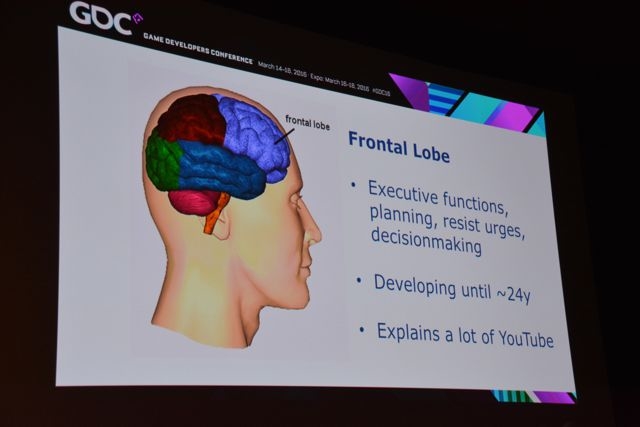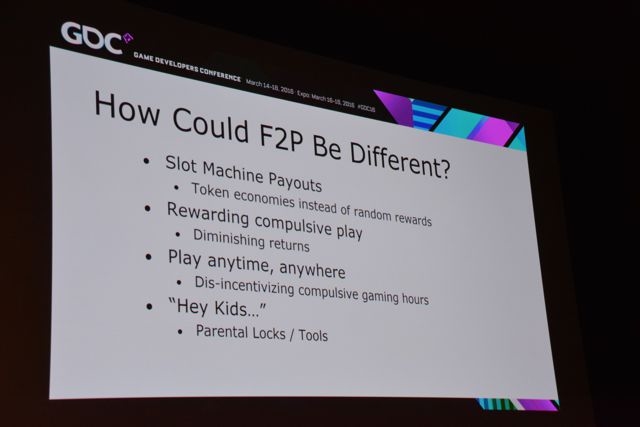At GDC 2016 this week, there was a session called “Gaming, Gambling or Addiction: F2P Scientific and Legal Perspectives” led by psychiatrist Tyler Black and his brother Ryan Black, a legal expert. The session addressed free-to-play games and how addiction may arise — and the possible future legal actions against them.
During the session, Tyler Black states that the biggest danger of game addiction lies among children. He proceeds to point out they aren’t the best at making good decisions and resisting urges for gratification. This is mainly due to the fact that their minds are still developing. This makes them more likely to be targets for games involving chance. He acknowledges that gaming itself is a relatively harmless activity that can become addicting through overuse.

(Source)
The referenced over-use is rooted in a desire for rewards. The danger Black speaks about lies with titles that offer rare drops, elusive bosses, and so on. These “luck of the draw” mechanics are where addiction develops.
Black proposed that self-regulation should become the norm for said games. For example, parental controls that bar microtransactions and in-game ads would be effective. Providing players details as to the percentage of a drop would also be beneficial.

(Source)
Ryan Black makes note that these suggestions are close to being passed, and some are already in place for other countries. His concern is that government has always found a way to legislate on entertainment that maybe harmful (see gambling). It maybe a matter of time for games in the US.
The brothers stress that it would be best for game companies to take the matter into their own hands before the government does so. Tyler Black ultimately ends the session with expressing that game designers should be responsible — not encouraging compulsive play, but offering fun and a fair challenge.







Published: Mar 16, 2016 09:32 am